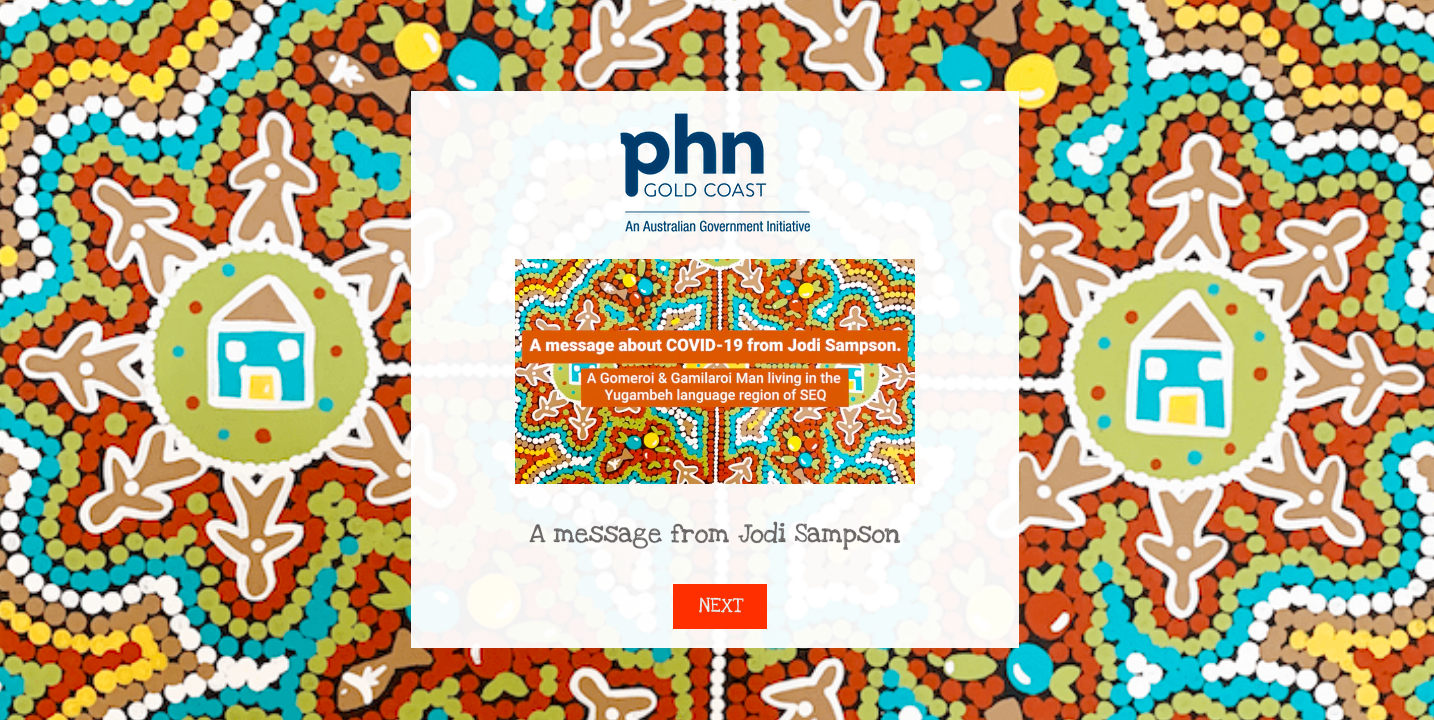Western Sydney Primary Health Network (WentWest) and Gold Coast Primary Health Network (GCPHN) are using GoShare Plus to create and share targeted COVID-19 communications for Aboriginal and Torres Strait Islander communities and Culturally and Linguistically Diverse (CALD) people to encourage vaccination and testing.
The interactive digital health packages include a video message from key community leaders speaking about the importance of vaccinations and how COVID-safe behaviours can help protect family, community, country and Elders. The short videos are captured using a virtual meeting platform, which allows messaging to be easily updated as needed.
Information about how to make a vaccination appointment is included in the SMS message which is received by patients from their GP via GoShare Plus. Patient lists can be filtered by vaccination status, age or existing chronic conditions.
Commenting on adopting a digital communications approach in collaboration with local community leaders, WentWest Senior Program Manager Scott Walters said, “Our initial focus was Indigenous communities and sharing COVID-related information which included a video from Aunty Rita Wright. In parallel discussions with community and religious leaders in Western Sydney, we quickly identified the need extend the initiative to communicate directly with our diverse CALD population. The interactive nature of the package enabled messaging to evolve from communicating stay at home orders, to encouraging vaccine uptake, to where to get vaccinated. Short videos to support these messages were created with local community leaders and medical professionals speaking in multiple languages to communicate these changing priorities. The success of this approach is all about local people, sharing local information with their local community.”
GCPHN Chief Executive Officer Matt Carrodus said, “We identified a need to send culturally appropriate messaging to address vaccine hesitancy amongst our Aboriginal and Torres Strait Islander communities. Twelve practices in the region have now sent digital packages to their patients via SMS which included a video message from community member Jodi Sampson. Response to the campaign to date has been extremely positive with open rates as high as 44% in some communities.
In the video message, Jodi Sampson – a Gomeroi & Gamilaroi Man living in the Yugambeh language region of South East Queensland – stressed that getting vaccinated would help keep family and community safe and encouraged people with concerns to speak with their GP or respected cultural knowledge holders.
“Vaccination not only protects me and my family, but other community members that I come in contact with around the country. I work closely with young people, Elders and those with chronic disease – so the health and wellbeing part of that contact is very important to me personally. From a spiritual and cultural perspective, the risk of losing our loved ones to COVID-19 is not as great if we all get vaccinated. Those who are concerned should seek health advice from trained professionals or cultural advice from respected cultural knowledge holders. Continuing to communicate these messages is essential,” Mr Sampson said.
GoShare Plus is a ‘next generation’ SMS reminder tool that brings together CAT4’s health analytics capability with GoShare’s extensive content library and unique ‘content bundle’ delivery method. GoShare Plus makes it easy for practice staff to send patients engaging, credible information relevant to preventative health campaigns and quality improvement activities to patient lists based on search, filter or reporting criteria.
Commenting of working with WentWest and GCPHN on this important initiative, Healthily Managing Director Dr Tina Campbell said, “We are pleased to support WentWest and GCPHN to address local COVID-related challenges including vaccine hesitancy using culturally appropriate content and information that speaks directly to issues being faced on the ground. The timely delivery of health information from trusted GPs, with messaging from respected community leaders, not only helps to dispel misinformation and promote positive behaviours, but supports the health literacy and self-management skills of communities in these PHN regions.”



